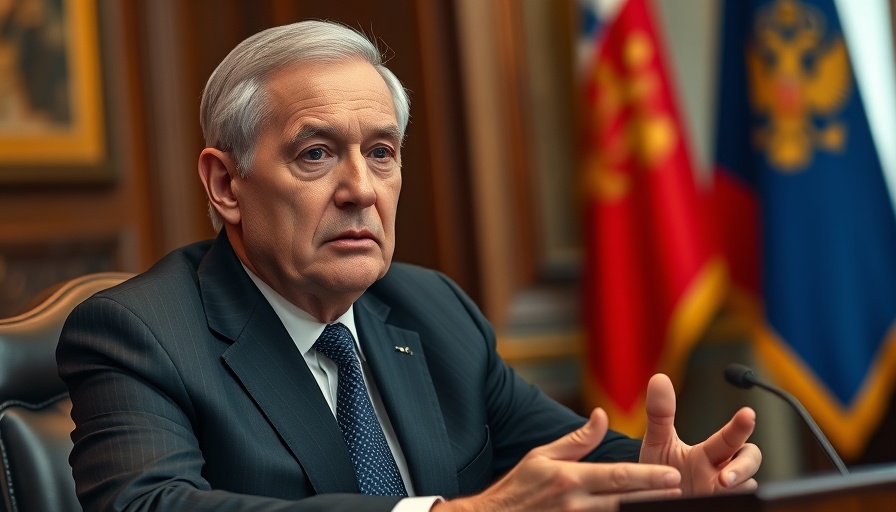
Russia's Hybrid Warfare: A Digital Battlefield
In the illuminating video "Putin’s silent war - Hybrid attacks in Europe", the contemporary tactics employed by the Russian government in its quest for geopolitical influence are dissected. As Russia attempts to destabilize Western nations, particularly in the wake of the Ukraine invasion, hybrid warfare has emerged as a crucial point of concern—focusing not just on military might but also on digital manipulations and psychological operations.
In “Putin’s silent war - Hybrid attacks in Europe,” we delve into the complexities of modern warfare, exploring how misinformation has become a key tool in the Kremlin’s strategy.
Historical Context and Background
The roots of hybrid warfare can be traced back to the Cold War, yet it has taken on new forms in the modern era. Vladimir Putin’s regime has taken advantage of advanced technology to orchestrate disinformation campaigns and influence public opinion across Europe. This evolution reflects a significant shift in warfare strategies—highlighting misinformation as a key instrument in achieving strategic goals without physical confrontation.
Misinformation as a Weapon
In this age of information, misleading narratives are rapidly spread via social networks, creating an atmosphere of confusion and distrust within democratic societies. Russian operatives, such as those portrayed in the documentary, have successfully infiltrated various sectors, including media and politics, showcasing Russia’s intention to manipulate democratic processes.
Impact on European Politics
The ramifications of such hybrid warfare extend beyond mere disinformation. For instance, in Slovakia, a shift toward pro-Russian sentiment among voters showcases how public perception can be altered through targeted campaigns. As elections unfold, it becomes apparent that the Kremlin’s strategic interventions have tangible effects on policy and alliances.
Future Predictions: A Fragile Europe
What does the future hold for Europe in the face of such incessant disinformation? Analysts speculate that as hybrid warfare techniques become more sophisticated, European nations may face an uphill battle in maintaining unity against external influences. The potential for political fragmentation looms large, as does the danger of civil unrest fueled by manipulated perceptions.
Conclusion: The Fight Against Manipulation
To thwart the Kremlin's designs, European countries must ramp up efforts in countering misinformation with factual narratives. Awareness and education play critical roles in this fight, empowering citizens to recognize and dismiss falsehoods that seek to undermine democratic institutions.
These events urge us to remain vigilant against disinformation campaigns, strengthen diplomatic ties, and uphold the fundamental tenets of democracy in the face of impending threats. As such, understanding these tactics enriches our awareness of contemporary geopolitical dynamics, making it crucial for all engaged citizens to stay informed and active in safeguarding the integrity of social and political systems.
 Add Row
Add Row  Add
Add 




Write A Comment